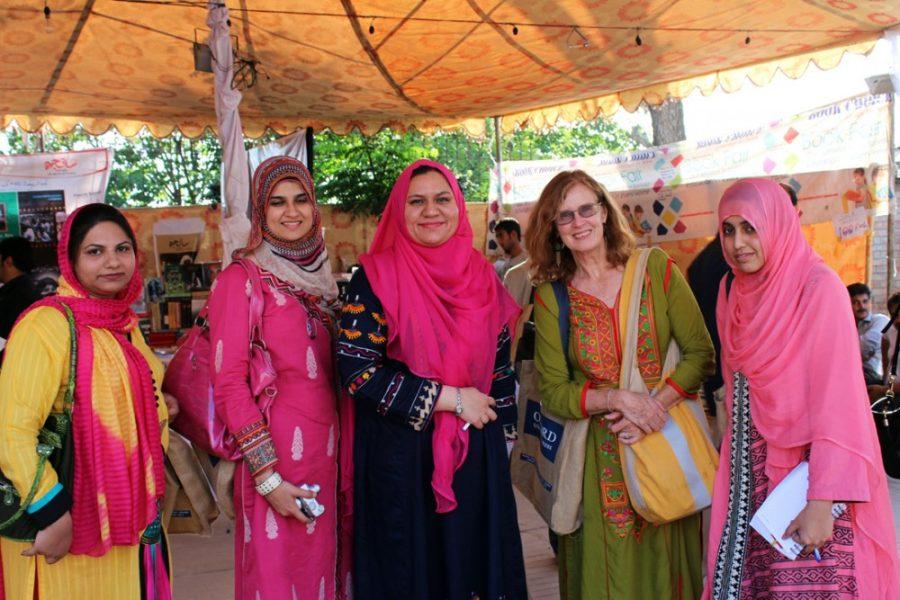UA professor Adele Barker returned after teaching abroad in Pakistan for five months with a new outlook on the importance of education.
The Department of Russian and Slavic Studies is home to Barker, who was selected as one of two Fulbright scholars to travel to Islamabad, Pakistan. The Fulbright Scholar Program was established after World War II to allow scholars to grow academically through scholarship and living abroad.
“It’s a program that was established by the then-senator from Arkansas, Jake William Fulbright, to send U.S. scholars and students abroad to help counter what he thought as the erosion of cultural understanding,” Barker said. “It has grown by leaps and bounds ever since.”
Barker said that in her opinion, the Fulbright Scholar Program is one of the best two things the U.S. has ever done, the other being the national park system.
On a normal morning while teaching in Pakistan, Barker would wake up, have her tea and be driven to school. Although this is the general pattern each day followed, Barker said it was always subject to change.
“My schedule was really dictated by the country and what it was going through at the time,” Barker said.
Barker said she experienced no average days while living and teaching in Pakistan due to the current civil unrest.
“At any giving moment something would happen,” Barker said. “There’s a tremendous amount [of] political turmoil over there at the moment. There would be demonstrations; there would be random bomb blasts.”
Barker taught at a university in Rawalpindi, Pakistan, that is only for women. The university was established in the 1990s, and unlike many U.S. institutions, it closed each day at 4:00 p.m., when faculty and students are asked to leave the campus. She was not allowed to stay to speak with students or accomplish more work.
Just before she returned to the U.S., Barker received a powerful email from one of her Pakistani students, that read:
“Dr. Adele, probably you are wondering why your class is so small. The reason is that none of us wanted to study with an American. Your people come to our country and kill our people, and you call us terrorists. Then you walked into our classroom and changed all that.”
Barker said receiving this email was the most memorable moment of her trip. She had never thought about why her class size was so few and that it might be affected by her nationality. Barker said that as a result of this trip, she gained huge respect for the women in Pakistan who are trying to get an education in a place where it can be so dangerous.
“I have never lived in a country where women in certain areas of that country can get killed for wanting an education,” Barker said. “That’s what happens in Pakistan. Certainly not in the area where I was teaching, but up in the Northwest.”
Barker said her opinion about the value a student places on his or her education to students has changed after working with students who are so dedicated to learning. Since her return from Pakistan, Barker has had a lower tolerance for American students who spend class time on social media websites, or who take their education for granted.
“I’ve talked to at least one of my classes about this this semester, and about the importance of education,” Barker said. “Don’t take it for granted, and if you do take it for granted, you shouldn’t be in the classroom.”
_______________
Follow Brandi Walker on Twitter @brandimwalker









